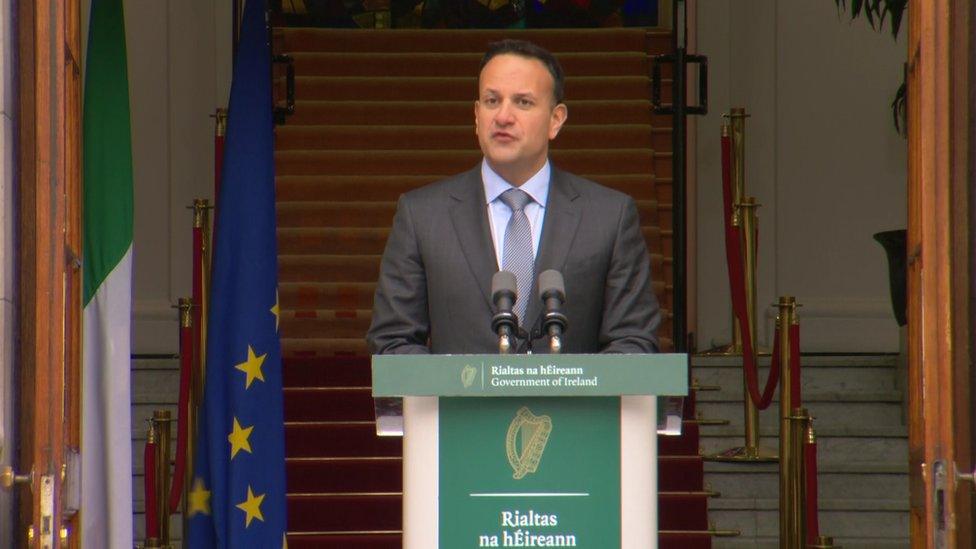Irish general election: Issues at the heart of Irish election campaign
- Published
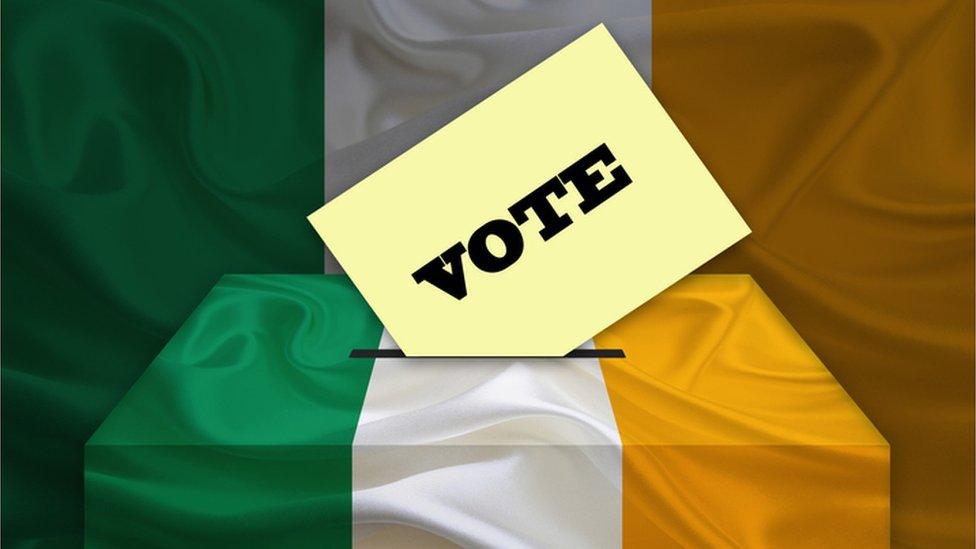
The Irish general election will take place on Saturday 8 February
The first full week of campaigning in the Irish general election has ended.
On 8 February, for the first time since Irish independence, voters will go to the polls on a Saturday.
Under other circumstances, Taoiseach (Irish Prime Minister) Leo Varadkar could be confident of a return to power.
The country's economy is once again booming, there is full employment and there is also Mr Varadkar's Brexit deal with UK Prime Minister Boris Johnson.
Later endorsed by the EU, it means there will be no hard border on the island once the UK leaves the EU in eight days' time.
But opinion polls suggest he is trailing Micheál Martin's Fianna Fáil party, with which Fine Gael has been in a confidence-and-supply arrangement for the last few years.
Both are centrist parties.
All politicians agree the main issues are housing, homelessness and health.
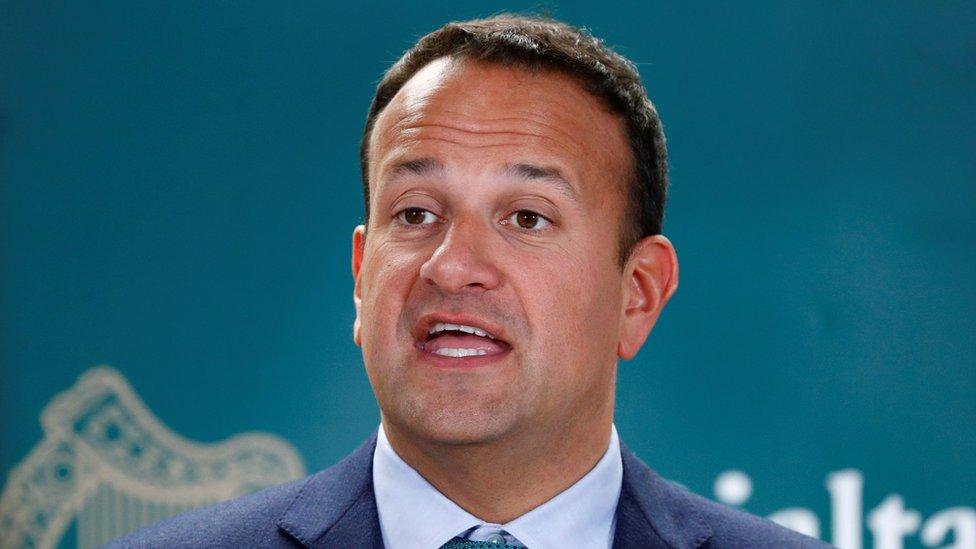
Opinion polls suggest Leo Varadakar's Fine Gael is trailing Micheál Martin's Fianna Fail party
But the last week has seen another issue unexpectedly, if only temporarily, take centre stage - pensions.
Like the UK, the Republic of Ireland has been extending the pension age from 65 towards 68 because people are living longer and there are fears about the future financial implications.
But with some companies insisting on workers leaving at 65, that has created cash shortfalls for many older people - a demographic that votes in large numbers.
It was an issue highlighted by Sinn Féin - a republican party which is in favour of a united Ireland - which said it believes the pension age should revert to 65 and the two bigger parties have had to scramble to satisfy older voters.
Since the economic crash, wages have increased, but rents and house prices have risen by a bigger margin.
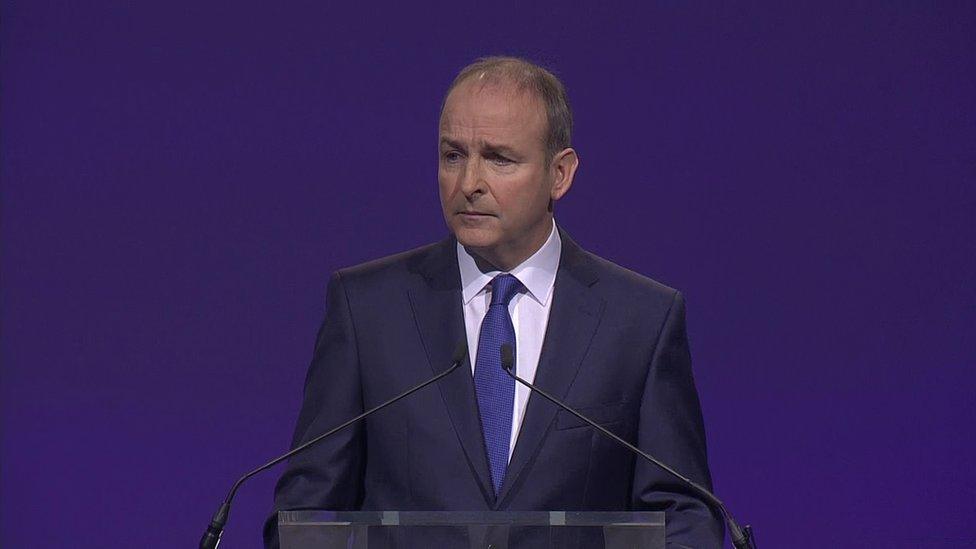
Micheál Martin's Fianna Fáil party has been in a confidence-and-supply arrangement with Fine Gael for the last few years
All the parties accept that more homes need to be built, but many people working in Dublin can only afford to rent or buy outside the capital with repercussions for travelling and childcare.
Childcare - which has become another stage-of-life election issue - can be very expensive because of high insurance premiums for providers.
Polls suggest that Sinn Féin, led by Mary Lou McDonald, is doing well.
One suggested it was on 21%, about double what it got in last year's local and European elections.
But history also suggests that polls over estimate how well the party will do because young, working class urban men, a demographic the party appeals to, often do not vote.
Both main parties insist they will not go into coalition with Sinn Féin because of concerns about the influence behind the scenes of what they call "shadowy figures", often former IRA prisoners.
But most observers agree it is only a matter of time until Sinn Féin will be in government north and south of the Irish border.
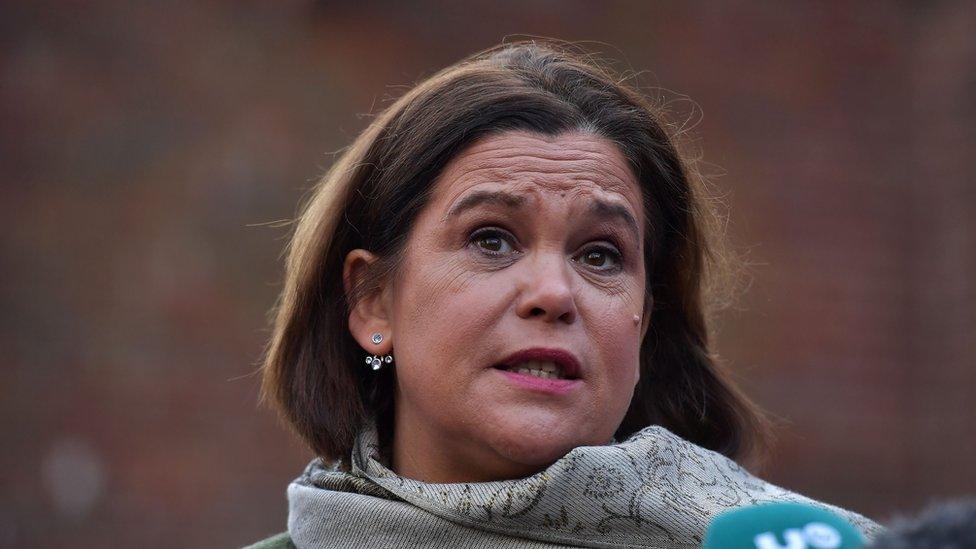
Polls suggest that Sinn Féin, led by Mary Lou McDonald, is doing well
In the meantime, the political leaders know there are still two weeks to change people's minds and for the campaign to take another unexpected turn.
And even after the results are known, there could be weeks, if not months, of political haggling before a government is formed.
- Published14 January 2020
